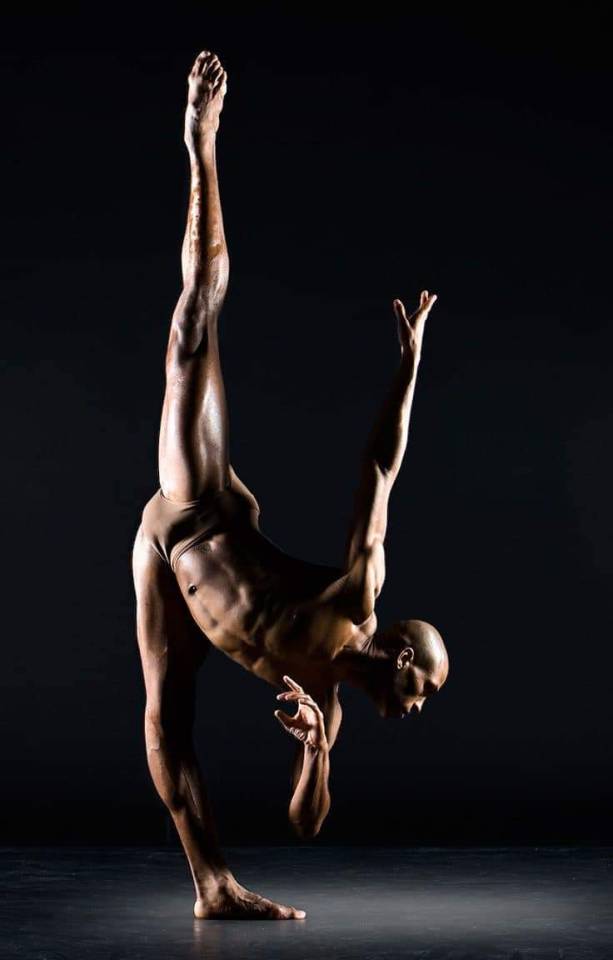#antonio douthit
Photo


"the life rhapsodic" : ajak deng, anais mali, arlenis sosa, jourdan dunn, & antonio douthit by norman jean roy for vogue mar '11
hair by jimmy paul, makeup by mathias van hooff
#ajak deng#anais mali#arlenis sosa#jourdan dunn#antonio douthit#norman jean roy#jimmy paul#mathias van hooff#upload
12 notes
·
View notes
Note

The thing is, THE THING IS, is that google is free, and it's one of those things that almost everyone uses, so the fact that you have homophobic anons coming to you and invalidating queer relationships by saying queer people can't have long lasting relationships + we all cheat on our partners, is unacceptable.
Because a quick google search could have shown queer couples who are still together after getting married ++ the small amount of queer people that have cheated on their partner VS. het people. And in an effort to not get disrespectful and bash het couples, I'm just going to say that maybe Het Celebrities (bcs that seems to be the topic) need to take a fucking page from queer people and learn how to be loyal to their partners.
From my own personal knowledge I have compiled a list of QUEER COUPLES who are still together (FOR YEARS) even if they're married or not, because Marriage is not definitive of the commitment that people have towards each other.
So for the uneducated here's a small education!.
George Takei & Brad Altman - Together for 37 years
Elton John and David Furnish - Together for 29 years
Wanda Sykes and Alex Niedbalski (I love them so much) - Together for 16 years
Tan and Rob France - Together for 15 years
Matt Bomer and Simon Halls (they were in a secret relationship for a decade before they came out as a couple, and Matt was always thought to be straight). - Together for 14 years
Antonio Douthit-Boyd and Kirven Douthit-Boyd - Together for 17/18 years
Lily Tomlin and Jane Wagner - Together for 51 years (since the 70's)
Alexandra Hedison and Jodie Foster - Together for 9 years
Sarah Paulson and Holland Taylor - Together for 7 years
I added a wide range, not just in age difference, but time they've been together, and I've also added BIPOC couples. I really don't know why people are insistent on making queer people seem horrible, and for what?. To prove that a potential queer couple could not be real?.
AND if that's not enough, because celebrities are "different" than normal people, I have added a link below to a review on an 'exhibition that explores and celebrates the everyday lives and enduring relationships of LGBT couples and families' as the intro has stated.
https://www.advocate.com/arts-entertainment/photography/2014/01/09/20-lgbt-couples-who-have-been-love-more-decade?amp
AND the biggest issue that these anon's are not fucking grasping is that these conversations can be incredibly triggering to queer people. The invalidation of not only our identity but our community is not only problematic but also oppressive. Anons grow the fuck up and learn from your ignorance, and leave queer people the fuck alone.
For you, I think you dropped it.
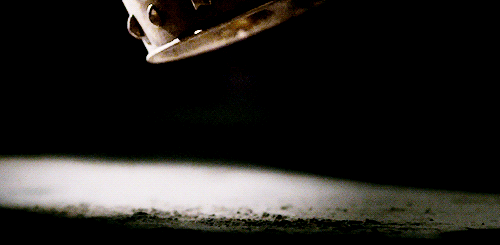
81 notes
·
View notes
Photo



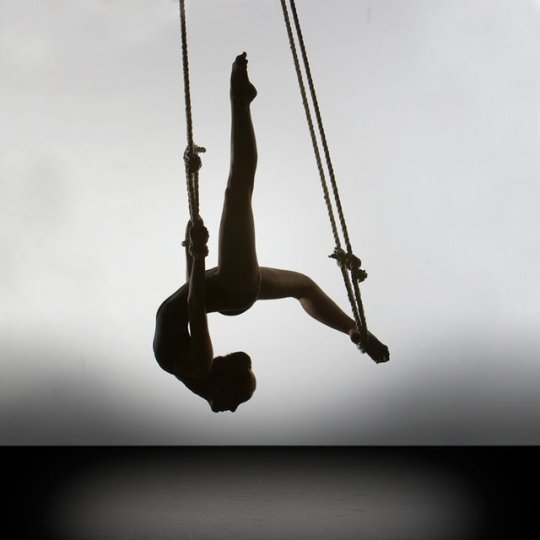
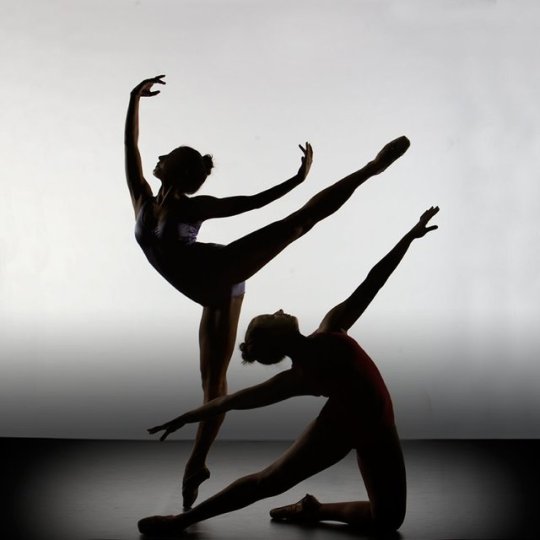
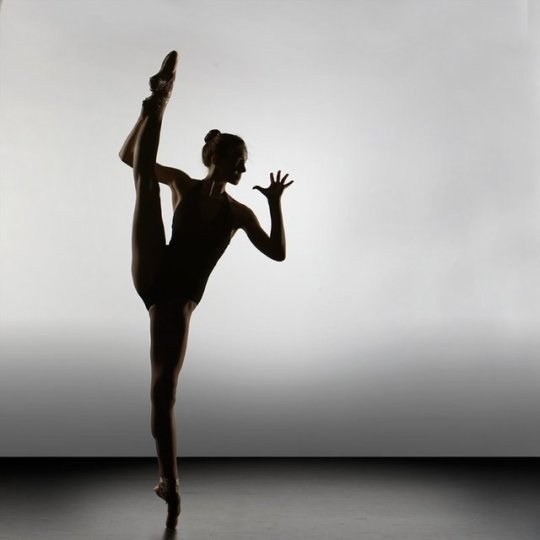



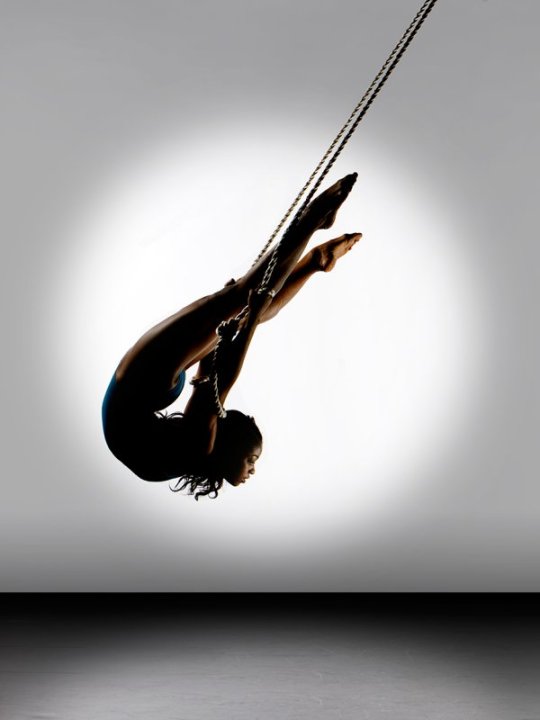
Photography by Richard Calmes
8. Aisha Mitchell and Antonio Douthit
9. Aisha Mitchell
10. Aisha Mitchell
10 notes
·
View notes
Photo

Countdown Profile: Week 5
Antonio David Lyons (’13)
Antonio David Lyons (’13) is an actor, musician, and activist. Antonio produces work with the Oregon Shakespeare Festival and is founder of We Are Here, an initiative to address masculinity with boys and men from New York to Capetown, through theatre. Interview by Michael Wilson (’11).
What are you up to in the world today, Mr. Antonio Lyons?
At the moment I am getting ready to head to South Africa tomorrow, for a bit of respite, and to check in with my organization, We are Here, and the people on the ground there...and also shoot a music video for a song I recorded the last time I was in South Africa.
And yesterday was quite a whirlwind day: I finished guest starring on an episode of a TV series here, called Seal Team, playing a Congolese general…very interesting storyline dealing with the complications of war.
Then also, I accepted an offer from the Oregon Shakespeare Festival for a nine-month contract with them, starting in January, to produce a version of Comedy of Errors...it’s part of a larger envisioning by Lue Douthit, called Play On!, where she commissioned a series of playwrights who were people of color, had different gender identities, sexualities, to reimagine works of William Shakespeare. One: to make the work more accessible, and, two: to move the conversation that Shakespeare started in his work further. It will be a touring show that engages communities in a very meaningful kind of way…[without the] elitist component that often comes with Shakespeare.
Sure, everyone thinks it’s just…it is from the white, European canon. And it has this history of consolidating white culture and white power.
Exactly. Exactly. I think it will elevate the work.
And I know also that you’ve been involved with the Oregon Shakespeare Festival for years. Do you remember the year that you started with them?
The first time I went must have been 2013 or 2014…it was like right after we graduated, this opportunity came up, to go as a producing fellow.
How does the experience you had at the MA [in Applied Theatre] inform the work you do at the Oregon Shakespeare Festival?
You know, I’ve been really fortunate, because every time I’ve gone to the Oregon Shakespeare Festival, it’s been to do work that absolutely uses artistic practices to engage community in meaningful ways. The first time I went was as a producing fellow, and I really learned a lot about the organization, about how a major institution like that produces theatre. One of the things that attracted me to it was that the artistic director is and was at the time Bill Rauch, who had come from Cornerstone Theatre. I was really interested in getting a handle on how he brought those sensibilities from Cornerstone as a community-based theatre really focused on helping people tell their stories, and helping people use theatre to address issues that were impacting their communities.
I’m interested in this craft and challenge of using old English plays to work in equity—what’s a moment or story of how that’s worked for you?
The process of commissioning. This work of William Shakespeare is always treated very preciously, as if it can’t be touched, it can’t be adapted, it can’t be updated, it can’t be expanded…and what Play On! does, is it challenges these notions of white supremacy inherent in language and culture: that it [Shakespeare's language] can only fit in certain bodies. Play On! Challenges all of that. It challenges marginalized bodies, and allows them to take this work, find themselves in the work, and see what it looks like in their skin, from their world view, which I think is very much about what it means to be an applied theatre practitioner.
Moving on, to help readers understand the multi-interested, multi-talented person you are: describe your music.
Oh my god. It’s my heart. Laughs. My music is my heart. It allows me, in a visceral kind of way, to say things that I don’t often get to say, to express things that I’m thinking, to address issues that are meaningful to me, and to use words and sound to move people…put that together and my music is a…heart movement. My music is a heart movement!
I’m sad this is only a written piece…the way you said “heart movement” was a song right there!
Laughs. Yeah. It uses the fullness of who I am, in terms of my Caribbean-ness, the African-inspired-ness, particularly of South Africa, with me having lived there for so long. It incorporates my poetry…and when I’m performing, it incorporates my dance.
And where can people find it?
Antoniodavidlyons.com and it’s also on Spotify and iTunes and Amazon.
Let’s jump over to We Are Here, because this would not be a complete conversation without talking about your project. Would you describe it?
We Are Here, it started as a one-person show, then it moved into this social activism campaign. Now it’s grown into a non-profit to addresses the core issues of identity, masculinity, and gender-based violence. In 2016, 2017, we were able to expand the work as we expanded the organization, to also include addressing issues of sexual and reproductive health and HIV/AIDS prevention. Part of what we really were aware of is that same sort of negative behaviors that can lead to gender-based violence can lead to exposure to HIV/AIDS and other STIs. The risky behavior is the same.
And over the course of the years, it was amazing to grow from the show, post workshop discussions, some workshops here and there, to having a new five-day curriculum, that went into community and strategically worked with populations of men and boys that ranged from 12 to about 30. We went from it being primarily two people and a part-time volunteer-ish person, to now having three kind of full-time people and five facilitators to do that work.
That’s amazing. I didn’t know that was happening.
Yeah. It was part of the US Government, through PEPFAR and Johnson and Johnson—they launched an initiative called DREAMS. The DREAMS initiative was all over the continent, and it was a search for best practices in addressing HIV and AIDS, with primarily women and girls, and also rolling out a preventative tool called PrEP. We were approached by a female-led organization out of Atlanta, called Sister Love, to be partners with them in applying for the DREAMS initiative grant, to do work in south Africa. We said yes, because part of the grant provided opportunities to do programming for male partners of their primary target population.
And so that happened, and it was a really amazing opportunity. The organization grew, we learned a great deal. We were able to have what I felt was a really great impact with some of the young men and boys we engaged with.
What were the biggest obstacles to healthy relationships that you worked with, with these men and boys?
You know, this idea of masculinity. One moment that comes to mind is this deep-dive conversation we were having, in the relationship module. [The men were] having conversations about how women are not able to be your friend—that they’re sexual objects. A great many of them were absolutely full-on committed to this idea. And what else came out of that moment was the thing that applied theatre does, right? Use theatre-based approaches to have conversations, and, if it’s well scaffolded, to create opportunities where people are easing into thinking and changes, and, before they know it, they’re having these epiphanies. One of the young men, in the midst of the conversation with his other friends, said, "I didn’t know you guys thought that way.” And he was like, “I don’t agree.” And it was a really difficult moment, challenging his friends and his peers on their behaviors. And challenging himself. We did the difficult work of holding space for that conversation.
What was the hardest part about it?
I think the hardest part was where I didn’t know where it was going to go. I was like, “oh my god, oh my god, we done opened up something here.” Because you want to hold space where people can have difficult conversations and not walk away wounded to the point of not being able to find healing. Or to [not be able to] come back to themselves.
Would you say more about how you used theatre in those projects?
In terms of the activities…they did some role playing. We did a lot of physical stuff, because we realized that, for men and boys, moving was really important. We used assessment tools, like human barometer. We used opportunities for collaging and visioning. We used an opportunity for them to do, in role playing, hotseating.
Did you use the piece, the poetry that was the basis for your solo show?
From that, I developed processes where we used the text. They would read from the text, and then there would be an opportunity to create the text embodied, then transform whatever that story was, and make it applicable to their own lives.
How much did you share from your own story: hey, this is me, Antonio, I’m a facilitator, I got into this work because…
I didn’t share that in that way, but, at points within processes, challenging dangerous ideas required a fine line between being a facilitator and being a mentor. Because there’s this…I think, at least for the community that I engaged with, as a facilitator there’s this unrealistic expectation that you would be neutral, in a way. And I think it’s problematic and unnecessary and dangerous, because what you’re asking of participants is to be open, honest, and vulnerable. Then in this neutral, semi-therapeutic role, you’re not [being open, honest, and vulnerable, yourself]. When you open up and reveal a part of yourself and your perspective…you break down that sense of hierarchy, you know.
What’s a point where you stepped in with that mentor side?
That conversation around women as friends. Because while they were able to challenge each other to a particular point, there was a hard disruption that had to happen, in terms of what it does to a community and a society, and to women themselves, when you cannot humanize women. When you cannot humanize other people.
What about men who have sex with men and, you know, I’ve never been to South Africa, but I would not be surprised if that was one of these invisible things—it happens but no one talks about it.
No, that’s real. There are lots of organizations that specifically and openly deal with men and MSM communities. There aren’t a lot of organizations that incorporate that in terms of the bridge between heterosexuals and MSMS, in terms of building relationships and understanding—
—but what about these boys, because masculinity—
Well with us—
How did you deal with that?
—with us what we did not do was ask anybody about their sexual identity. Or how they engage sexually. And it’s always a hard line for me, because I never want any other identified person to feel marginalized or spotlighted. I don’t allow certain languages that may be derogatory to pass by. Because there was one point where that came up. The term that was used for a gay man was a “half man.” [I said] “Okay, let’s deal with that. Let’s get all the way in that right now.” So we did. The people who identified as gay in the room quickly understood, “okay...”
“…he’s got our back.”
All the facilitators in the room got our back. And those who use that language understood, this is going to be challenged, and that’s not okay in this space. And they’re able to engage with these other people who were clear about who they were, and walk away with a different perspective.
Thank you. No surprise, we’re coming up on 40 minutes here, and I feel like we’re just getting started…what would you want someone who is thinking about building a life in theatre and education and social justice to know, what gift would you give them?
Lean into your passion, and that it’s all possible.
We were talking years ago and you’d wanted to have this kind of thing come to fruition, from the growth of We Are Here to landing acting gigs of the profile that you were just shooting recently. So it’s possible indeed.
Yeah, I’m really excited. I’m really excited to see where it goes next. I’m looking at putting together a tour of We Are Here in the US next year, so working with my managers on crafting that, doing a guest star recurring on Bosch, and I’ll be back on that series in the new year. Yeah, you know, now we’re in the hard part of trying to identify funding sources in South Africa. Because that project was for a limited time, in terms of that funding source. It ended up being a very challenging experience, but we learned, and we move forward.
You learn and you move forward.
That’s the skinny my friend.
Thank you so much. Travel safe tomorrow.
Thank you. Ah. I’m so excited. I’m exhausted and excited at the same time.
1 note
·
View note
Text
NewHopeshirt - Official Baby Stitch I Got Vaccinated But I Still Want Some Of You To Stay Away From Me Shirt
Buy this shirt: https://newhopeshirt.com/product/official-baby-stitch-i-got-vaccinated-but-i-still-want-some-of-you-to-stay-away-from-me-shirt/
This year, ballerinas Melanie Hamrick, Joanna DeFelice, and Christine Shevchenko joined together to form the Official Baby Stitch I Got Vaccinated But I Still Want Some Of You To Stay Away From Me Shirt and by the same token and ballet production company Live Arts Global. Their first show, Night at the Ballet, is an evening designed to support artists and crew members who have lost their jobs due to the pandemic. The live show will take place on December 17 and stream on YouTube through December 20. Dancers like Calvin Royal III and Antonio Douthit-Boyd will perform excerpts from Don Quixote, Romeo and Juliet, and more, while The Nutcracker will be performed by NYCB’s Crystal Serrano and Aran Bell. On the importance of including The Nutcracker in the night’s lineup, Hamrick says, “My first memory of The Nutcracker was when I was four years old (the same age as my son now!).” Watch Night at the Ballet here.

This year, the Official Baby Stitch I Got Vaccinated But I Still Want Some Of You To Stay Away From Me Shirt and by the same token and performing arts live on Marquee TV, an on-demand streaming platform dedicated to global arts and culture. Available for viewing are some very festive programs from the Scottish Ballet, Houston Grand Opera, and the American Shakespeare Center. Some of these streams are ticketed—just like at the theater—including a screening of George Balanchine’s the Nutcracker from the New York City Ballet. Filmed just last year and starring Maria Kowroski as the sugarplum fairy, the production aired earlier this month. Kowroski, who has been performing the ballet with the company for more than 26 years, dazzles in what is actually her swan song. “I remember the orchestra sounding more beautiful than ever, and the choreography feeling new again,” the ballerina says. Watch the bittersweet performance here.
📷
Home: https://newhopeshirt.com/
0 notes
Photo

ANTONIO DOUTHIT-BOYD, KIRVEN DOUTHIT-BOYD, & YANNICK LEBRUN FOR THE ALVIN AILEY DANCE THEATER OF HARLEM NYC. PHOTO BY ANDREW ECCLES! #Tuesday #producers #studiolife #instagram #amsterdam CONSTELLATION FOREVER ☆ ☆ ☆ ☆ ☆ ☆ #indiespeaks #IndieNation #Blog #Indie #indieartist #music #newmusic #musicvideo #rap #hiphop #hiphopartist #rockband #rock #pop #rnb #doubletap #EDM #dj #countrymusic #newartist #songwriters (at Lower Manhattan)
#music#hiphop#songwriters#indieartist#rockband#rap#amsterdam#studiolife#pop#indiespeaks#countrymusic#rnb#instagram#indienation#hiphopartist#rock#edm#dj#musicvideo#indie#blog#newmusic#tuesday#doubletap#newartist#producers
1 note
·
View note
Text
9/11/18 O&A NYC SHALL WE DANCE FRIDAY: Alvin Ailey: Awassa Astrige / Ostrich by Asadata Dafora
9/11/18 O&A NYC SHALL WE DANCE FRIDAY: Alvin Ailey: Awassa Astrige / Ostrich by Asadata Dafora
Sierra Leone-born choreographer Asadata Dafora blended his vision of a traditional African dance with Western staging in this groundbreaking 1932 solo set to Carl Riley’s score of African drumming and flute and performed Ailey dancer by Antonio Douthit-Boyd. (more…)
View On WordPress
#African dance#Alvin Ailey American Dance Theater#Asadata Dafora#Awassa Astrige- Ostrich#Carl Riley#choreography#Choroegraphy#Music#Shall We Dance Friday#Traditional African Dance#Video
0 notes
Text
New Post has been published on PBA-Live
New Post has been published on http://pba-live.com/no-definite-plan-yet-for-isaiah-austin-as-andray-blatche-makes-gilas-comeback-2/
No definite plan yet for Isaiah Austin as Andray Blatche makes Gilas comeback
FOR now, Andray Blatche will continue manning the fort for Gilas Pilipinas.
With the qualifier for the 2019 World Cup set to start two weeks from now, Gilas is once again leaning on old reliable Blatche to get the job done just like he did in the 2014 Fiba World Cup and, most recently, the Seaba Championships in Manila.
Gilas has considered a number of options for the lone spot allotted for naturalized players under Fiba rules, among them Fil-German Christian Standhardinger, who took Blatche’s place in the Fiba Asia Cup in Lebanon, and Isaiah Austin, who reinforced Chooks to Go in the Fiba Asia Champions Cup in Chenzhou, China two months ago.
Standhardinger has since been made the top pick in the PBA Rookie Draft by San Miguel Beer and is currently under contract to play for Hong Kong Eastern in the ABL while Austin has gone back to the US after the short stint with Gilas.
“Nothing specific yet,” was the curt reply of Gilas team manager Butch Antonio when asked about any plan the team may have for the lanky, 24-year-old big man.
The 7-foot-1 Baylor University alumnus gave a good account of himself during his lone stint with Gilas but so far, the Samahang Basketbol ng Pilipinas (SBP) has not started any move to naturalize him or any player for that matter.
“We have not begun the tedious and difficult process of naturalizing anyone new. Our current naturalized player is (still) Andre Blatche,” said SBP vice-chairman Robbie Puno.
The former Antipolo City representative spearheaded the naturalization of Marcus Douthit and Blatche, but he admitted that no decision has been made on potential candidates.
“No final decision made on that,” Puno said.
That shouldn’t pose a problem for now since the 6-foot-11 Blatche has been made available even if the 2017-18 season of the Chinese Basketball Association (CBA) is ongoing.
Blatche plays for defending CBA champion Xinjiang Flying Tigers, but national coach Chot Reyes has assured the naturalized player will arrive in the country on Nov. 12 to join Gilas in its buildup for games against Japan on Nov. 24 and Chinese-Taipei on Nov. 27.
Source: http://www.spin.ph/basketball/fiba/news/gilas-to-make-do-with-andray-blatche-as-naturalization-process-for-isaiah-austin-yet-to-get-going-in-congress#vxfqiHZ9KsJqo16L.99
0 notes
Text
Bethune Cookman’s Professors Speak Out!
Dear Graduates of Bethune-Cookman:
First, congratulations! We are so proud of what you have accomplished. You have studied, prepared, planned, learned, and have earned what our parents, grandparents, and ancestors have had to fight, scrape, and die for in this nation. We are proud of you for that!
WATCHING YOU STAND AND TURN YOUR BACKS TO HER MAKES US ELATED. OVERJOYED. HUMBLED. IT WAS A DAY AND A MOMENT THAT SHOULD HAVE BEEN ABOUT CELEBRATING YOU AND WHAT YOU ACHIEVED.
Beyond becoming graduates, we are floating this morning thinking about how you stood up to your university and protested the woefully under-qualified Secretary of Education who attempted to address you at your graduation yesterday. Watching you stand and turn your backs to her makes us elated. Overjoyed. Humbled. It was a day and a moment that should have been about celebrating you and what you achieved.
The world watched you protest the speaker you never should have had. We cheered as we saw so many of you refuse to acquiesce in the face of threats and calls for complicity. Your actions fit within a long tradition of Black people fighting back against those who attack our institutions and our very lives with their anti-Black policies and anglo-normative practices. Betsy DeVos’ commitment to dismantling public education and her egregious framing of historically Black colleges and universities as “pioneers” in school choice are just two examples of why she should never have been invited to speak at an event celebrating Black excellence.
We shared your outrage when it was announced that DeVos would serve as your commencement speaker and receive an honorary degree. As your administration hid behind the rhetoric of “learning from people with divergent perspectives,” current students objected. Alumni petitioned. We watched from a distance wondering how but knowing why this moment was taken from honoring you.
But then, you turned it around, figuratively and literally. We beamed with joy as we watched videos and read tweets of how you took your graduation back to honor yourselves. To honor your founder. To honor our ancestors. To honor us all.
You represent the best of Mother Mary McLeod Bethune who took the little she had and built an institution that remains committed to bringing out the best in us. You are the best of us. We, the undersigned, are Black professors and college administrators— some of us at HBCUs, some of us at PWIs, some of us HBCU alums— and we thank you. We salute you. And we love you.
Hail, Wildcats!
1. Yaba Blay, PhD, Dan Blue Endowed Chair in Political Science, North Carolina Central University
2. Camika Royal, Ph.D., Assistant Professor of Urban Education, Loyola University Maryland (North Carolina Central University, Class of 1999)
3. Treva B. Lindsey, Associate Professor of Women’s, Gender, and Sexuality Studies, The Ohio State University
4. Imani Perry, Hughes-Rogers Professor, Princeton University
5. Brittney Cooper, Assistant Professor of Women’s, Gender, and Africana Studies, Rutgers University
(Howard University, Class of 2002)
6. Susana Morris, Associate Professor of English, Auburn University
7. Robin M. Boylorn, Ph.D., Associate Professor (of Interpersonal and Intercultural Communication), University of Alabama (and The Crunk Feminist Collective)
8. Blair LM Kelley, Associate Professor of History, North Carolina State University
9. Dr. Kaila Adia Story, Associate Professor in Women’s and Gender Studies and Pan African Studies and Audre Lorde Endowed Chair in Race, Gender, Class and Sexuality Studies, University of Louisville
10. Melanye Price Associate Professor, Africana Studies and Political Science, Rutgers University New Brunswick
11. Mark Anthony Neal, Duke University
12. Marc Lamont Hill, Steven Charles Endowed Professor of Media, Cities, and Solutions, Temple University
13. Dr. Arturo Lindsay, Professor Emeritus, Spelman College
14. Jessica M. Johnson, Assistant Professor of Africana Studies and History, Johns Hopkins University
15. Tanisha C. Ford, Associate Professor, University of Delaware
16. Jim Harper, PhD, Chair, History, North Carolina Central University (North Carolina Central University, Class of 1994 /Class of 1997)
17. Charles D. Johnson, Ph.D., Assistant Professor of History and, Director of the Public History Program, North Carolina Central University
18. Patrick Douthit aka 9th Wonder, Artist in Residence, North Carolina Central University / Duke University
19. Baiyina W. Muhammad, Ph.D., Associate Professor of History, North Carolina Central University
20. Lydia Lindsey, Associate Professor of History, North Carolina Central University
21. Gloria Ladson-Billings, Kellner Family Chair in Urban Education, University of Wisconsin (Morgan State University, Class of 1968)
22. Akinyele Umoja, Professor and Chair, African-American Studies, Georgia State University
23. Fahamu Pecou, PhD, Artist Scholar, Emory University/ Adjunct Professor of Art, Spelman College
24. Guthrie P. Ramsey, Jr., Edmund J. and Louise W. Kahn Term Professor of Music, University of Pennsylvania
25. Charles McKinney, Director, Africana Studies, Associate Professor of History, Rhodes College
26. Lester Spence, Associate Professor of Political Science and Africana Studies, Johns Hopkins University
27. Mat Johnson, Full Professor, University of Houston
28. Regina N. Bradley, Assistant Professor English and African Diaspora Studies, Kennesaw State University
29. Asia Leeds, Ph.D., Assistant Professor of International Studies, Spelman College
30. Akissi Britton, Ph.D., Lecturer, Sociology/Anthropology, Pace University
31. Takiyah Nur Amin, PhD, Assistant Professor, Dance Studies, UNC Charlotte
32. Ashanté Reese, Assistant Professor, Sociology and Anthropology, Spelman College
33. Dr. Khalilah L. Brown-Dean, Associate Professor of Political Science, Quinnipiac University
34. Charles H.F. Davis III, Ph.D., Director & Assistant Professor, USC Race and Equity Center
35. Fanon Che Wilkins, Associate Professor, Graduate School of Global Studies, Morehouse College
Kyoto, JAPAN (Morehouse University, Class of 1991)
36. Lumumba Akinwole-Bandele, Visiting Assistant Professor, Pratt Institute/Adjunct Lecturer, Lehman College/CUNY
37. Emir Lewis, Adjunct Professor, Film & TV, Tisch School of The Arts, New York University
38. Aimee Meredith Cox, Associate Professor of African American Studies, Fordham University
39. Tiffany D Pogue, Assistant Professor, Teacher Education, Albany State University
40. Dr. Kimberly J. Chandler, Assistant Professor of Communication Studies, Affiliate Faculty, Women’s Studies Program, Xavier University of Louisiana
41. Racine R. Henry, Ph.D., LMFT, Visiting Assistant Clinical Professor, Drexel University
42. W. Michelle Harris, Assoc. Professor, Interactive Games & Media, Rochester Institute of Technology
43. Renee Baron, Associate Professor of Liberal Arts and American Studies, The Juilliard School
44. Shari Robinson-Lynk, LMSW, ACSW, Professor of Practice, SW@S, Simmons College
45. Kinitra Brooks, Associate Professor of English, University of Texas at San Antonio
46. Twayla Eason, MSW, LCSW, Assistant Professor of Social Work, Shaw University
47. George Derek Musgrove, Ph.D., Associate Professor of History, Affiliate Professor of Africana Studies, University Maryland Baltimore County
48. Nikki R. Byrom, Instructor, University of West Georgia
49. Heidi R. Lewis, Associate Director & Assistant Professor Feminist & Gender Studies, Colorado College
50. Josie Pickens, Coordinator of Developmental Writing, Texas Southern University/HBCU Grad
51. Michael Leo Owens, Ph.D., Associate Professor of Political Science, Emory University
52. Dr. Antonia Randolph, Assistant Professor, Winston-Salem State University
53. Gwendolyn D. Pough, Professor of Women’s and Gender Studies and Dean’s Professor of the Humanities, Syracuse University
54. Lisa B. Thompson, Ph.D., Associate Professor of African & African Diaspora Studies, University of Texas at Austin
55. Prof. Najja K. Baptist, Instructor, Political Science, Howard University
56. Amrita Chakrabarti Myers, Ph.D., Ruth N. Halls Associate Professor of History and Gender Studies, Indiana University, Bloomington
57. Melina Abdullah, Pan-African Studies, Cal State LA
58. Kristine Wright, Ph.D., Faculty – Sociology, Los Angeles Southwest College
59. Sam Vernon, Adjunct Assistant Professor of Art, Vassar College
60. Aisha Tandiwe Bell, Adjunct Professor, Borough of Manhattan Community College (BMCC)
61. Christina M Greer, PhD, Associate Professor, Political Science, Fordham University
62. Brandi Blessett, Assistant Professor, Rutgers University-Camden
63. Tia Sherèe Gaynor, Assistant Professor, Marist College
64. Camille Z. Charles, Walter H. and Leonard C. Annenberg Professor in the Social Sciences
Director, Center for Africana Studies, University of Pennsylvania
65. Devon R. Johnson, Ph. D., Faculty Teaching Instructor, Department of Criminology, School of Social Justice, Rutgers University
66. Danielle M. Wallace, Assistant Professor, William Paterson University
67. Rachel Watkins, Associate Professor of Anthropology, American University
68. Dr. Shaunna Payne Gold, Associate Director, Student Development & Assessment Programs, University of Maryland
69. Tennille Allen, Associate Professor and Chair of Sociology, Lewis University
70. Marta Moreno Vega, Adjunct Professor NYU Art and Public Policy Department
71. Koritha Mitchell, Associate Professor of English, Ohio State University
72. Noel A. Cazenave, Professor of Sociology, University of Connecticut
73. Scott Poulson-Bryant, Assistant Professor of English, Fordham University
74. Anita Thompson, Adjunct Lecturer, African/African-American Studies Program, Eastern Kentucky University
75. Krystal Strong, Assistant Professor, Education, Culture, and Society, University of Pennsylvania
76. Suzanne Henderson, PhD, Independent Scholar of African American Studies
77. Jasmine Mitchell, Assistant Professor, State University of New York-Old Westbury
78. Candice M. Jenkins, Associate Professor of English and African American Studies, University of Illinois, Urbana-Champaign
79. Jillian Carter Ford, Associate Professor of Educational Equity, Kennesaw State University
80. Natasha Lightfoot, Associate Professor, History, Columbia University
81. Crystal R. Sanders, Associate Professor of History and African American Studies, Pennsylvania State University
82. Dr. Rashawn Ray, Associate Professor of Sociology, University of Maryland, College Park
83. Linda Chavers, Ph.D., Temple University
84. Dre Domingue, EdD, Visiting Lecturer, University of Massachusetts-Amherst
85. Siobhan Carter-David, Assistant Professor of History, Southern Connecticut State University
86. Derrais Carter, Assistant Professor, Portland State University
87. Kesi Amandla Augustin, PhD Candidate, New York University
88. Tracey Lewis-Giggetts, MBA, MFA, Professor of English and Creative Writing, Community College of Philadelphia
89. Bayeté Ross Smith, Associate Professor, NYU Tisch Dept. of Photography and Imaging (FAMU 1999)
90. Karla FC Holloway, James B. Duke Professor of English, Professor of Law, Duke University
91. K.T. Ewing, Ph.D., Assistant Professor of History, Tennessee State University
92. Apryl A. Alexander, Clinical Assistant Professor, University of Denver
93. Courtney R. Baker, Associate Professor, American Studies, Occidental College
94. Shanté Paradigm Smalls, PhD, Assistant Professor of Black Literature & Culture, St. John’s University
95. Anita W. Plummer, Ph.D., Assistant Professor, Howard University
96. Dr. Rose Brewer, Professor, University of Minnesota
97. Tabitha Chester, PhD, Denison University, Visiting Assistant Professor of Women’s and Gender Studies & Black Studies
98. Ramon Goings, Ed.D., Assistant Professor of Education Leadership, Loyola University Maryland
99. Adanna Johnson-Evans, Associate Professor of Psychology; Director of African & African American Studies (Prairie View A&M University, Class of 1999)
100. Heather Z. Lyons, Ph.D., Professor of Psychology, Loyola University Maryland
101. Adell Cothorne, Professional Development Schools Coordinator, Loyola University Maryland (Morgan State University, Class of 1994)
102. Jay Morrow, Webmaster, University of the District of Columbia (North Carolina Central University, Class of 1995)
103. Sherie Randolph, Associate Professor, Georgia Institute of Technology
104. Ed Brockenbrough, Associate Professor, University of Rochester
105. Lynnette Mawhinney, Associate Professor, The College of New Jersey
106. Jay Sanford-DeShields, Associate Professor, Temple University
107. Aishah Shahidah Simmons, Visiting Scholar, University of Pennsylvania
108. Michael Dumas, Assistant Professor, University of California, Berkeley
109. Vanessa Dodo Seriki, Assistant Professor of Science and Urban Education, Loyola University Maryland
110. Lionel C. Howard, Ed.D., Assistant Professor of Educational Research, The George Washington University
111. Robert D. Bland, Assistant Professor, St. John’s University
112. Genyne Royal, Ph.D., Neighborhood Director, Student Success Collaborative, Michigan State University (Shaw University, Class of 1995)
113. Jennifer Williams, Assistant Professor, Morgan State University
114. Tanya Maloney, Assistant Professor, Montclair State University
115. Shannon King, Associate Professor of History, The College of Wooster
116. Su’ad Abdul Khabeer, Associate Professor, Purdue University
117. Eric Darnell Pritchard, Assistant Professor, University of Illinois at Urbana-Champaign (Lincoln University of Pennsylvania, Class of 2002)
118. Ifeoma Ike, Esq., Adjunct Professor, Political Science and African/Africana Studies, Lehman College
119. Dr. Adisa A. Alkebulan, Associate Professor, Department of Africana Studies, San Diego State University
120. Rema Reynolds, Assistant Professor, Eastern Michigan University
121. Keon McGuire, Assistant Professor, Arizona State University
122. Chinonye Chukwu, Assistant Professor, Wright State University
123. Sharita Jacobs, Independent Scholar of History (North Carolina Central University, classes of 1994 and 1996; Howard University, class of 2009)
124. Melissa Haithcox-Dennis (Dr. H-D), Adjunct Professor, Department of Health Education and Promotion, East Carolina University (North Carolina Central University, Class of 1997)
125. Khadijah Costley-White, Assistant Professor, Rutgers University
126. Shameka Powell, Assistant Professor, Tufts University
127. Sheena Harris, Ph.D., Assistant Professor of History, Tuskegee University
128. Alexandria Smith, Assistant Professor, Studio Art, Wellesley College
129. Leslie E. Wingard, Associate Professor of English, College of Wooster
130. Dr. Arica L. Coleman, Independent Scholar
131. andré carrington, Assistant Professor of English, Drexel University
132. Mendi Obadike, Ph.D., Associate Professor of Humanities and Media Studies, Pratt Institute
133. Keith Obadike, Associate Professor of Communication, William Paterson University
134. G. Clausen, Visiting Faculty, UNC School of the Arts
135. Tanya Mears, Associate Professor, Worcester State University
136. Jeffrey Q. McCune, Jr., PhD, Associate Professor of Women, Gender, Sexuality Studies and Performance Studies / Director, Mellon Mays Undergraduate Fellowship Program, Washington University
137. La TaSha Levy, Ph.D., Assistant Professor, American Ethnic Studies Department, University of Washington
138. Debra T. Wiley, Associate Professor, Albany State University/COE Teacher Education
139. Wahneema Lubiano, Associate Professor, Department of African & African American Studies,
Duke University
140. Marcia Jones, Professor of Art, Art Institute Charlotte (Clark Atlanta University Class of 1990)
141. Yolonda Wilson, Howard University
142. Weldon McWilliams, PhD, Assistant Professor of History, SUNY Dutchess Community College
143. Dr Tempii Champion, LIU Brooklyn
144. Ashley Farmer Ph.D., Assistant Professor, History & African American Studies
145. Dr. Charles Peterson, Associate Professor of Africana Studies, Oberlin College
146. Dr. André E. Key, Assistant Professor of African American Studies, Claflin University
147. Elliott H. Powell, Assistant Professor, University of Minnesota.
148. Don C. Sawyer III, Ph.D., Assistant Professor of Sociology, Quinnipiac University
149. Sureshi M. Jayawardene, PhD Candidate, African American Studies Instructor, International Studies, Northwestern University
150. Abigail A. Sewell, Assistant Professor, Emory University
151. Piper Anderson, Adjunct Professor, Gallatin School, New York University
152. Brandy Thomas Wells, Ph.D., Assistant Professor of History, Department of History, Anthropology, & Philosophy
153. Yolanda Vivian Williams, M.Ed., M.A., Eastern Illinois University
154. Matthew J. Countryman, Associate Professor of History and American Culture, University of Michigan
155. Chryste L. Johnson, ACSW, Lecturer, Department of Social Work, Humboldt State University
156. Regina M. Moorer, Ph.D, Assistant Professor, Auburn University-Montgomery
157. Sharanna Brown, English Instructor, Alabama State University
158. Efeya Sampson, Adjunct Lecturer in the Dance Department, Sarah Lawrence College
159. Grace D. Gipson, Visiting Lecturer in African American Studies at Georgia State University
160. Prof. Kasandra Pantoja, Sociology, Passaic County Community College
161. Anedra Jones, Professor of Instruction, Department of Mathematics, University of Akron
162. Benjamin A. Saunders, Ph.D., Associate Professor of Psychology, Long Island University – Brooklyn
163. Brandi Hinnant-Crawford, PhD, Assistant Professor of Educational Research, Western Carolina University
164. Ijumaa Jordan, Adjunct Professor
165. Monique J. Roberts, JD, Adjunct Professor, Department of Public Administration, John Jay College of Criminal Justice, CUNY
166. Caitlin Cherry, Adjunct Professor (Fine Art), Columbia University
167. Keisha Green, Assistant Professor, University of Massachusetts Amherst
168. Tarshel Beards, Adjunct Professor, English Composition and News Writing, Malcolm X College
169. Terri Coleman, Instructor of English, Dillard University
170. Celina Dozier, Postdoctoral Research Associate, UMass, Amherst
171. Shelly Washington, Adjunct Professor, Coppin State University
172. Nicole Dugger, Graduate Teaching Assistant, English
173. Aaisha Haykal, MSLIS, Manager of Archival Services, College of Charleston Avery Research Center for African American History and Culture
174. Ebony Elizabeth Thomas, Assistant Professor, University of Pennsylvania
175. Alexis Caputo, Adjunct Lecturer & Professor of Dance, University of Miami
176. Risikat I. Okedeyi, Associate Professor of English, Prince George’s Community College
177. Chezare Warren, Assistant Professor of Teacher Education, Michigan State University
178. Dr. Aminah Perkins, Adjunct Instructor, Western Carolina University
179. LeConte Dill, Assistant Professor, SUNY Downstate School of Public Health
180. Dr. Regina Spellers Sims, Resident Faculty, DePaul University School of New Learning
181. Tonia Poteat, Assistant Professor, Johns Hopkins Bloomberg School of Public Health
182. Cherie Dawson-Edwards, Ph.D., Associate Professor, Criminal Justice, University of Louisville
183. Bianca C. Williams, Associate Professor, Anthropology, University of Colorado Boulder
184. Dr. Nicole Rousseau, Associate Professor, Kent State University
185. Shirletta J. Kinchen, Ph.D., Assistant Professor of Pan-African Studies, University of Louisville
186. Rosalyn Davis, Ph.D. HSPP, Clinical Assistant Professor, Department of Psychology, Indiana University Kokomo
187. Giovanni N. Dortch, Adjunct Instructor, University of Memphis
188. Arlene Pitterson, Adjunct Professor, Fashion Institute of Technology, State University of NY
189. Jovonne Dempster, MSW, Lecturer, Social Work Department, Humboldt State University
190. Toya Williams, Adjunct Professor Central Piedmont Community College
191. Chantè D. DeLoach, Psy.D., Santa Monica College
192. Chris Roberts, Instructor, Temple University
193. Samira Abdur-Rahman, Assistant Professor of English, University of San Francisco
194. Brian Lozenski, PhD, Assistant Professor of Urban and Multicultural Education
Macalester College
195. T.J. Tallie, Assistant Professor of African History, Washington and Lee University
196. Jennifer Freeman Marshall, Assistant Professor of English and Women’s, Gender, & Sexuality Studies, Purdue University (Spelman College, Class of 1990)
197. Christina Sharpe, Ph.D., Professor, English, Africana, & Women’s, Gender, & Sexuality Studies Tufts University
198. William J. Broussard, Ph. D., Assistant Professor of English, Southern University
199. Joyce M. Bell, Associate Professor of Sociology, University of Minnesota
200. Anyabwile Love, Assistant Professor, Community College of Philadelphia
Shannon J. Miller, PhD Associate Professor, Minnesota State University, Mankato
201. Dr. Le’Trice Donaldson, Lecturer, History and Philosophy, City University of New York-York College
202. Calvin John Smiley, PhD, Sociology, Hunter College
203. Whitney Battle-Baptiste, Associate Professor, Anthropology, University of Massachusetts Amherst
204. Michael Roman, Visual Arts Program Director, Morehouse College
205. Karsonya Wise Whitehead, Associate Professor, Loyola University Maryland
206. Whitney Pirtle, Assistant Professor, Sociology, University of California Merced
207. Imani Kai Johnson, Ph.D., Assistant Professor, Critical Dance Studies, UC Riverside
208. Timea M. Webster, Facilitator, Words of Engagement Intergroup Dialogue Program, University of Maryland
209. Dr. Lisa M. Anderson, Associate Professor and Faculty Head, Women and Gender Studies, School of Social Transformation, Arizona State University
210. Ronald J. Stephens, Professor and Director, African American Studies and Research Center, Purdue University
211. Ngeri Nnachi, Clinical Legal Fellow, University of St. Thomas
212. Dejenaba Gordon, MPH, MPH Internship Director, Arcadia University
213. Beverly Guy Sheftall, Professor, Spelman College
214. Lynnee Denise, California State University of L.A.
215. Lewis Erskine, Assistant Arts Professor, NYU Tisch School of the Arts
0 notes
Photo

Love In Motion: Kervin and Antonio Douthit-Boyd met while dancing at the Alvin Ailey American Dance Theater and married in 2013. They retired in 2015 and moved to St. Louis to become Co-Artistic Directors at the Center Of Creative Arts (COCA) to inspire young people in that community to learn dance -- it's also Antonio's hometown. @kdboyd84 @adouthitboyd @alvinailey #BlackLove #Love #LoveWins #AlvinAiley #COCA #Dance #Community #Culture #BlackGayMen #OurStory #BlackManMagic #NativeSon 📷Andrew Eccles @eccles
#alvinailey#love#lovewins#ourstory#dance#blackmanmagic#blacklove#community#culture#nativeson#blackgaymen#coca
0 notes
Photo
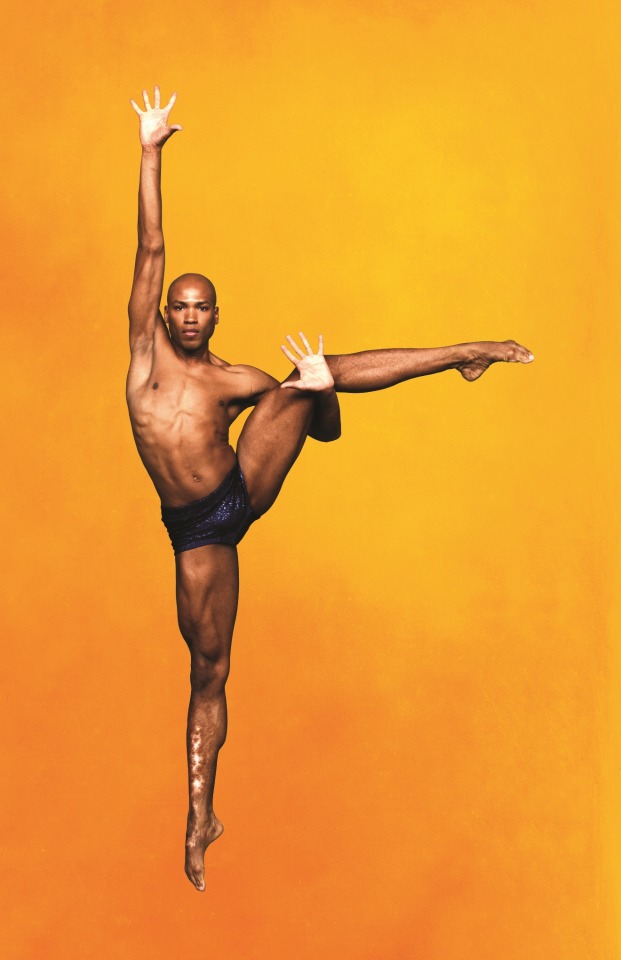
Antonio Douthit
Alvin Ailey American Dance Theater
31 notes
·
View notes
Photo
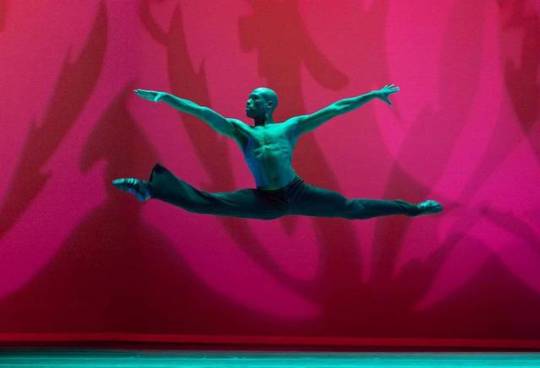
ANTONIO DOUTHIT-BOYD IN ALVIN AILEY'S REVELATIONS. PHOTO BY GERT KRAUTBAUER. #Friday #producers #studiolife #instagram #amsterdam CONSTELLATION FOREVER ☆ ☆ ☆ ☆ ☆ ☆ #indiespeaks #IndieNation #Blog #Indie #indieartist #music #newmusic #musicvideo #BlackHistoryMonth #hiphop #hiphopartist #rockband #rock #pop #rnb #doubletap #EDM #dj #countrymusic #newartist #songwriters #independentartist #soundcloud #rapper #singers (at Lower Manhattan)
#producers#doubletap#songwriters#pop#rnb#musicvideo#dj#music#rock#rapper#singers#hiphopartist#rockband#indiespeaks#studiolife#countrymusic#instagram#blog#edm#indieartist#amsterdam#blackhistorymonth#hiphop#indienation#friday#newartist#newmusic#independentartist#soundcloud#indie
1 note
·
View note
Text
New Post has been published on PBA-Live
New Post has been published on http://pba-live.com/no-definite-plan-yet-for-isaiah-austin-as-andray-blatche-makes-gilas-comeback/
No definite plan yet for Isaiah Austin as Andray Blatche makes Gilas comeback
FOR now, Andray Blatche will continue manning the fort for Gilas Pilipinas.
With the qualifier for the 2019 World Cup set to start two weeks from now, Gilas is once again leaning on old reliable Blatche to get the job done just like he did in the 2014 Fiba World Cup and, most recently, the Seaba Championships in Manila.
Gilas has considered a number of options for the lone spot allotted for naturalized players under Fiba rules, among them Fil-German Christian Standhardinger, who took Blatche’s place in the Fiba Asia Cup in Lebanon, and Isaiah Austin, who reinforced Chooks to Go in the Fiba Asia Champions Cup in Chenzhou, China two months ago.
Standhardinger has since been made the top pick in the PBA Rookie Draft by San Miguel Beer and is currently under contract to play for Hong Kong Eastern in the ABL while Austin has gone back to the US after the short stint with Gilas.
“Nothing specific yet,” was the curt reply of Gilas team manager Butch Antonio when asked about any plan the team may have for the lanky, 24-year-old big man.
The 7-foot-1 Baylor University alumnus gave a good account of himself during his lone stint with Gilas but so far, the Samahang Basketbol ng Pilipinas (SBP) has not started any move to naturalize him or any player for that matter.
“We have not begun the tedious and difficult process of naturalizing anyone new. Our current naturalized player is (still) Andre Blatche,” said SBP vice-chairman Robbie Puno.
The former Antipolo City representative spearheaded the naturalization of Marcus Douthit and Blatche, but he admitted that no decision has been made on potential candidates.
“No final decision made on that,” Puno said.
That shouldn’t pose a problem for now since the 6-foot-11 Blatche has been made available even if the 2017-18 season of the Chinese Basketball Association (CBA) is ongoing.
Blatche plays for defending CBA champion Xinjiang Flying Tigers, but national coach Chot Reyes has assured the naturalized player will arrive in the country on Nov. 12 to join Gilas in its buildup for games against Japan on Nov. 24 and Chinese-Taipei on Nov. 27.
Source: http://www.spin.ph/basketball/fiba/news/gilas-to-make-do-with-andray-blatche-as-naturalization-process-for-isaiah-austin-yet-to-get-going-in-congress#ts4m57M26F0B8Gvc.99
0 notes
Photo
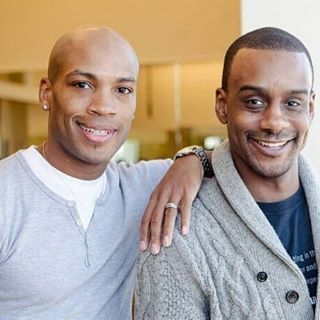
Love Is A Verb! Partners in life and work Antonio and Kirven Douthit-Boyd @adouthitboyd @kdboyd84 are the Co-Artistic Directors at the Center Of Creative Arts (COCA) in St. Louis where they teach young people the art of dance. The retired @alvinailey dancers were married in 2013 and continue to inspire us! #BlackLove #Love #LoveWins #Husbands #AlvinAiley #COCA #Dance #Community #Culture #BlackGayMen #OurStory #BlackManMagic #NativeSon (at Edgware Barnet, Edgware)
#alvinailey#love#lovewins#ourstory#dance#blackmanmagic#blacklove#community#husbands#culture#nativeson#blackgaymen#coca
0 notes
